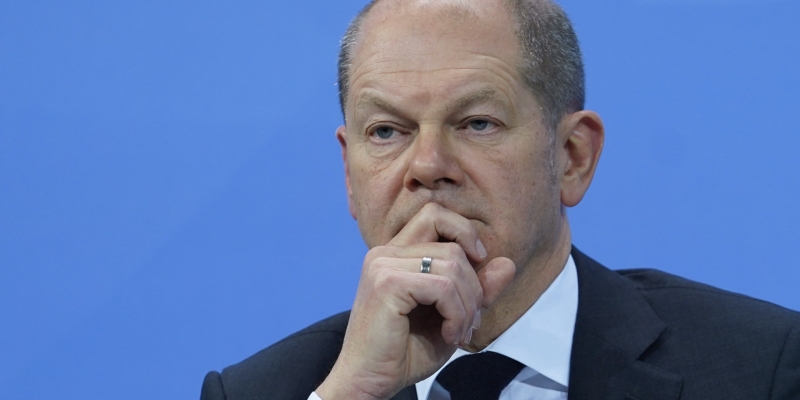Bild: Scholz was followed by the GDR secret services in the 1980s, some reports were sent to the USSR In the documents of the Federal Archive of Germany, information about the surveillance of the current Chancellor of Germany in the 1980s has been preserved. The secret services of the GDR sent reports about the young German politician, including to the KGB of the USSR

Olaf Scholz
In the 1980s, when the current German Chancellor Olaf Scholz visited the GDR, he was followed by special services, Bild reports with reference to documents from the Federal Archive. Some reports on the results of surveillance were sent to the State Security Committee (KGB) of the USSR, the newspaper notes.
At that time, Scholz was deputy chairman of the youth wing of the Social Democratic Party of Germany (SPD)— Jusos. At the invitation of youth organizations in East Germany, he repeatedly traveled there as part of West German delegations. Surveillance of him and other members of the delegation was conducted by employees of the Ministry of State Security of the GDR (Ministerium für Staatssicherheit, briefly— Stasi, or Stasi in Russian).
According to Bild, from 1978 to 1987, Scholz’s name appeared in reports at least 19 times.
In addition to East Germany, Stasi officers also monitored Jusos members in West Germany. A scout code-named Kugel from Hamburg to Germany submitted 12 reports. The newspaper clarifies that a member of the Hamburg branch of the SPD, economist Kurt Vand, was hiding under the name Kugel. His father was in a concentration camp and later worked for the Stasi. He also recruited his son, making him a secret agent. According to Bild, about 3 thousand people worked for the Stasi in Germany, 78 of them in Hamburg.
Daniela Munkel, an employee of the Federal Archive, told Bild that the main directorate of the GDR Ministry of State Security was responsible for delegations of Western politicians who came to East Germany by invitation. Intelligence officers collected information about the activities of Jusos, political trends and conflicts within this wing of the SPD.
Some GDR intelligence reports on Scholz were sent to the USSR, or rather, to the KGB. Bild reports that many GDR foreign intelligence documents were destroyed in 1989-1990 before the unification of Germany. However, they could be preserved in the archives of the KGB. Munkel clarified that the USSR was actively interested in the political situation and the balance of power in Germany, including young socialists. Therefore, the transfer of intelligence reports to Moscow was not uncommon, the expert added.
Scholz commented on the archival data about the surveillance of him, specifying that he knew about it. “Of course, I know that I was also spied on. It’s not good, but that’s the way it is,” he said.
Scholz joined the ranks of the SPD in 1975, when he was still at school. He was Deputy Chairman of Jusos from 1982 to 1988. From 1987 to 1989, he was Vice-president of the International Union of Socialist Youth, which united youth organizations of socialist, Social democratic and labor trends.
From 2000 to 2004 and from 2009 to 2018, Scholz was the branch Chairman of the SPD in Hamburg, and from 2009 to 2019, he was also a Deputy Federal Chairman of the party. From 2007 to 2009, he served as the Minister of Labor and Public Affairs of Germany.
In early December 2021, Olaf Scholz was elected Chancellor of Germany, replacing Angela Merkel.
Subscribe to Instagram RBC Get news faster than anyone

